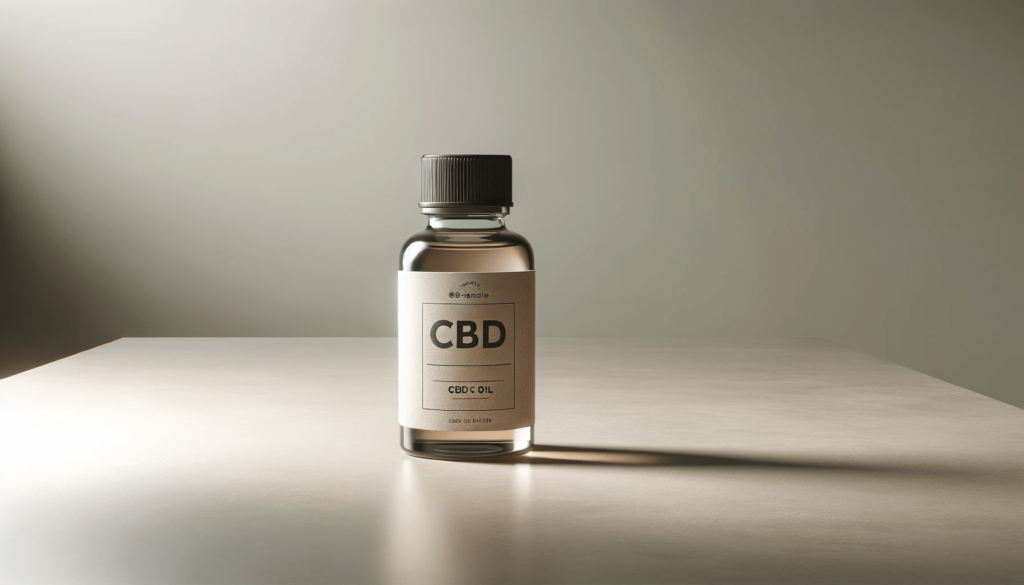Introduction
The emergence of CBD (cannabidiol) oil as a popular natural remedy has sparked considerable interest in its long-term effects and potential health benefits. Derived from the cannabis plant, CBD oil is celebrated for its therapeutic properties without the psychoactive effects associated with THC (tetrahydrocannabinol). This article delves into the safety and efficacy of long-term CBD oil use, examining scientific evidence, potential benefits, and considerations.
Understanding CBD Oil
CBD oil contains Cannabidiol, a compound that interacts with the body’s endocannabinoid system (ECS). Unlike THC, CBD is non-intoxicating, making it an appealing option for individuals seeking relief without altered consciousness. The ECS plays a crucial role in regulating various physiological processes, including pain sensation, mood, and immune function, and CBD’s interaction with this system underlies many of its purported benefits.
Long-term Benefits of CBD Oil

The potential long-term benefits of CBD oil span several health areas:
CBD oil, derived from the cannabis plant, contains Cannabidiol (CBD), a compound that has gained significant attention in the wellness community for its potential health benefits. Unlike its counterpart, THC, CBD does not produce psychoactive effects, making it an appealing option for those seeking natural remedies without the ‘high’ typically associated with cannabis. Over recent years, the long-term use of CBD oil has been a subject of growing interest and research, particularly in areas like chronic pain management, mental health, and neuroprotective properties.
Chronic Pain Relief: One of the most notable long-term benefits of CBD oil for pain. Studies have shown that CBD can interact with the body’s endocannabinoid system, which plays a key role in regulating pain, mood, and immune system responses. By influencing this system, CBD may reduce inflammation and interact with neurotransmitters, potentially providing relief from conditions such as arthritis, multiple sclerosis, and chronic back pain. For many sufferers of chronic pain, CBD oil offers a potential alternative to traditional pain medications, which can have undesirable side effects and risks, especially with long-term use.
Mental Health Benefits: CBD oil is also gaining recognition for its possible benefits in managing mental health conditions, such as anxiety and depression. Unlike conventional pharmaceuticals, CBD offers a natural approach, which is a significant draw for many users. Studies suggest that CBD may alter the way the brain’s receptors respond to serotonin, a neurotransmitter closely linked to mental health. By potentially enhancing serotonin signals, CBD oil could offer a sense of calm and improved mood over time, which is particularly beneficial for those dealing with chronic stress, anxiety disorders, and depression.
Neuroprotective Properties: Research into the long-term use of CBD oil has also uncovered its potential neuroprotective properties. This is particularly relevant for neurodegenerative diseases like Alzheimer’s, Parkinson’s, and multiple sclerosis. CBD’s ability to act on the endocannabinoid system and other brain signaling systems may provide benefits for those with neurological disorders. For instance, several studies have indicated that CBD treatment may improve quality of life and sleep quality for people with Parkinson’s disease.
Improved Sleep Patterns: For individuals struggling with sleep disorders, CBD oil might offer a long-term solution. By addressing factors like anxiety, pain, and stress, which can disrupt sleep, CBD can potentially foster a more restful and consistent sleep pattern. This, in turn, contributes to better overall health and well-being.
Cardiovascular Health: Emerging research suggests that CBD may also have benefits for the heart and circulatory system, including the ability to lower high blood pressure. High blood pressure is linked to higher risks of a number of health conditions, including stroke, heart attack, and metabolic syndrome. The stress- and anxiety-reducing properties of CBD are thought to contribute to its ability to help lower blood pressure.
Safety and Side Effects
While CBD is generally well-tolerated, long-term use raises questions about safety and side effects. Common side effects include fatigue, changes in appetite, and gastrointestinal discomfort. The interaction of CBD with other medications, particularly over prolonged periods, warrants careful consideration and consultation with healthcare professionals.
Dosage and Administration
Determining the appropriate dosage of CBD oil for long-term use is a nuanced process that varies significantly among individuals. Unlike conventional medications, where dosages are often standardized, CBD oil requires a more personalized approach due to differences in body chemistry, the condition being treated, and individual sensitivity to CBD.
The general consensus among experts is to start with a low dose and gradually increase it. This method, often referred to as “start low and go slow,” allows users to monitor their response to the oil and adjust the dosage accordingly. For instance, starting with a dose as low as 5-10 mg per day and gradually increasing it over several weeks can help identify a comfortable and effective dose.
It’s also important to consider the concentration of CBD in the product. CBD oils vary widely in their concentrations, and a dose in milligrams will have different effects depending on the concentration of CBD in the oil.
Furthermore, the method of administration plays a crucial role in the effectiveness of CBD. Common methods include sublingual administration (placing the oil under the tongue), capsules, edibles, and topical applications. Each method has a different absorption rate and bioavailability, influencing how quickly and effectively the CBD is absorbed into the bloodstream.
Regular monitoring and consultation with healthcare professionals are advisable, particularly for individuals using CBD to manage specific health conditions. This ensures that the dosage remains effective and safe over time, and adjustments can be made in response to changes in health status or the emergence of side effects.
Quality and Source Considerations
When selecting CBD oil for long-term use, quality and source are paramount. Opt for products from reputable companies that provide detailed information about hemp sourcing and CBD extraction methods. High-quality CBD oil is often derived from organically grown hemp, free from pesticides and harmful chemicals. It’s crucial to check for third-party lab testing results, which offer transparency regarding the product’s cannabinoid profile and the presence of contaminants like heavy metals and solvents. Reliable manufacturers will also clearly label the concentration of CBD, ensuring consumers can accurately gauge dosage and purity. In essence, thorough vetting of product quality and source is essential for safe, effective long-term use of CBD oil.
Research and Clinical Studies
Research and clinical studies on CBD oil, though growing, remain in early stages. Initial findings suggest potential benefits for conditions like chronic pain, anxiety, and epilepsy. However, many studies are limited by small sample sizes, short durations, and varying dosages and formulations of CBD. Long-term effects and interactions with other medications are still under investigation. Rigorous clinical trials are essential to establish standardized dosages, efficacy, and safety profiles. As interest in CBD’s therapeutic potential increases, future research is expected to provide more comprehensive insights, guiding its medical application and informing public policy and healthcare practices.
Regulatory and Legal Considerations
In Canada, the regulatory and legal landscape for CBD oil is governed by the Cannabis Act, which came into force on October 17, 2018. Under this act, CBD is treated similarly to other cannabis products, subject to strict regulations to ensure public safety. Key considerations include:
- Legal Status: CBD is legal in Canada but must be obtained through authorized retailers or directly from licensed producers. The sale of CBD and cannabis products by unauthorized parties remains illegal.
- Quality Control: Products must meet stringent quality control standards set by Health Canada, including limits on THC content and freedom from contaminants.
- Age Restrictions: The purchase and use of CBD oil are restricted to individuals aged 18 or older, with some provinces and territories setting the minimum age at 19.
- Product Labeling: Accurate labeling is mandatory, providing consumers with information about CBD and THC content, ingredients, and recommended usage.
- Prescription CBD: While over-the-counter CBD products are available, certain high-concentration CBD oils may require a prescription.
- Marketing and Advertising: Strict rules govern the marketing and advertising of CBD products, emphasizing health and safety over unfounded claims.
- Interprovincial Trade: While CBD is legal across Canada, there are variations in regulations between provinces and territories, affecting the availability and types of products.
Comparisons with Traditional Therapies
Comparing CBD oil to traditional therapies highlights its potential as a natural, alternative treatment option. For chronic pain, CBD may offer anti-inflammatory benefits with fewer side effects and lower dependency risks than NSAIDs or opioids. In mental health, CBD shows promise in treating anxiety and depression, potentially causing fewer side effects than conventional antidepressants. While traditional antiepileptic drugs are effective, CBD, particularly FDA-approved Epidiolex, has gained attention for treating certain severe epilepsy forms. For sleep disorders and inflammatory skin conditions, CBD offers a potentially safer alternative to traditional sleep aids and steroid-based creams, respectively. However, comprehensive clinical research is essential to fully validate these comparisons.
Potential Risks and Precautions
While CBD oil is generally considered safe, there are potential risks and precautions to be aware of, especially with long-term use:
- Drug Interactions: CBD can interact with various medications, including blood thinners, certain antidepressants, and immune suppressants. It’s essential to consult with a healthcare provider before starting CBD, particularly if you are on other medications.
- Liver Health: Some studies suggest that high doses of CBD may impact liver health. Regular monitoring of liver enzyme levels might be advisable for those using higher doses of CBD.
- Quality and Purity Concerns: The CBD market can vary in product quality and purity. Products contaminated with pesticides, heavy metals, or solvents pose health risks. Choosing products tested by third-party laboratories is crucial for ensuring safety.
- Side Effects: While often mild, side effects of CBD can include fatigue, diarrhea, changes in appetite, and weight fluctuations. These effects are generally more pronounced at higher doses.
- Pregnancy and Breastfeeding: Due to a lack of research, the use of CBD is not recommended during pregnancy or breastfeeding.
- Psychological Effects: Though CBD is non-psychoactive, its impact on mental health conditions like anxiety and depression can vary. Close monitoring is advised, particularly for individuals with a history of mental health disorders.
- Long-Term Health Effects: The long-term health effects of CBD are not fully understood. Caution and regular health evaluations are recommended for extended use.
- Legal and Regulatory Issues: The legality of CBD varies by region, and it’s important to be aware of local laws and regulations when purchasing and using CBD products.
Conclusion
In conclusion, CBD oil offers intriguing potential as a natural remedy for various health conditions, with its benefits ranging from pain relief to mental health support. However, it’s crucial to approach its use with an informed perspective, acknowledging the need for more comprehensive research, particularly regarding long-term effects. Users should be mindful of quality, dosage, potential drug interactions, and legal considerations. As the landscape of CBD research and regulation evolves, it’s essential to stay informed and consult healthcare professionals for guidance. Ultimately, while CBD oil presents a promising option, it should be integrated thoughtfully and safely into one’s health regimen.

